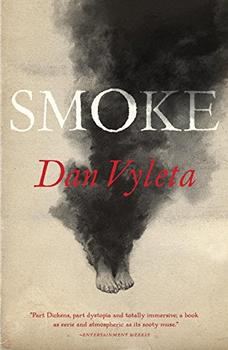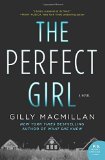Summary | Excerpt | Reviews | Beyond the book | Read-Alikes | Genres & Themes | Author Bio

Kate Racculia's novel Bellweather Rhapsody is a quirky, engaging mystery set in a decaying hotel over a high school music festival weekend. Unfortunately, the event falls on the fifteenth anniversary of a heinous murder-suicide that happened in the hotel's room 712. A bride hanging herself by an electric cord after shooting her newlywed groom is an event that is unlikely to happen twice, but when Jill Faccelli, a flute player staying in room 712 goes missing, rumors spread that the hotel is cursed. As the snow (amounting to nearly 30 inches) begins to fall outside the Bellweather Hotel, the guests start to wonder if the Bride Ghost of 712 has claimed another victim.
There could be more reasonable explanations however. Jill's mother, Viola Fabian, the director of the festival, is curiously sanguine about her daughter's disappearance. Minnie, the only witness to the double murder suicide fifteen years ago, has mysteriously returned to the hotel. Natalie Wilson, a high-school music teacher and former student of Jill's demonic mother, may have found a way to get back at Viola for the way she treated her as a young student. And then there is Alice Hatmaker, the diminutive diva, who believes her roommate Jill was murdered, despite the fact that the body has not been located. As the snow continues to fall, and Alice realizes that the only way to get people to believe her is to find Jill's body herself, the tension mounts to a pulsating crescendo.
Despite the absorbing plot, to say that Bellweather Rhapsody is about a murder mystery is as reductive as saying that Pride and Prejudice is about marriage. Clearly the novel revolves around the resolution of Jill Faccelli's whereabouts, but its weighty bulk tackles deeper subjects.
As Racculia portrays a weekend of gifted young artists performing great music, she also explores the nature of talent and the grace of second chances. As the festival brims with hopeful young musicians anticipating talent scouts and life in the spotlight, their disaffected teachers and conductors, disappointed at their own missed chances for fame, watch from the orchestra seats. The novel contemplates the fickleness of talent and the ways in which the most deserving are not always the ones most served. Fisher Brodie, the gifted, temperamental conductor was a piano prodigy as a youth, but something happened to the fingers on his left hand. Rumors abound that the injury may have been self-inflicted. In contrast, Alice Hatmaker's teacher Natalie Wilson, was a devoted piano student who matured into a begrudging teacher. The talent that came so easily to Fisher eluded Natalie. Whereas Fisher accepts his role and mourns the loss of his abilities, Natalie is overcome with bitterness.
Another example is provided by Jill Faccelli, a child prodigy, whose talent merely makes her more noticeable to her cruel, exacting mother, Viola. Jill intimates that she would give up her flute if she could live a normal life. Alice Hatmaker desperately wants to be a professional singer, but she feels great insecurities. The notion that she's not as good as she wants to be nearly incapacitates her. To Jill and Alice, Fisher and Natalie present an example of the differing ways maturing musicians can handle the fickleness of raw talent. All four musicians struggle with their gifts (or lack thereof) as they wonder whether or not their love of music will transport them to fame and fortune.
Suffused throughout this analysis of talent and music is the theme of second chances. All the characters come to the Bellweather in a state of flux: Alice seeks reassurance of her talent, and Jill desires freedom from her mother. Yet others are in a state of transition, seeking a path to a better way of life. For example, Minnie Graves has suffered for 15 years since the night of the murder-suicide that dropkicked her into a life of nightmares and obesity. She has returned to the Bellweather to close the door on her fearful past.
The conclusion offers the resolution and path to a new start that many of the characters desire. Though the weekend at the Bellweather is a harrowing one, each emerges from it in a better, more hopeful state.
Bellweather Rhapsody is as engrossing as it is intelligent. The characters are captivating, the scenes vibrant, and the internal pulse of the narrative keeps the pages moving. Comparisons to The Shining — with its murder, desolate hotel, and restrictive snow — and to Glee — the high-school musicians make this association easy — are apt. In the end, Racculia creates a unique and boisterous read that is sure to please.
![]() This review was originally published in The BookBrowse Review in June 2014, and has been updated for the
June 2015 edition.
Click here to go to this issue.
This review was originally published in The BookBrowse Review in June 2014, and has been updated for the
June 2015 edition.
Click here to go to this issue.

If you liked Bellweather Rhapsody, try these:

by Dan Vyleta
Published 2017
"Smoke is an addictive combination of thriller, fantasy, and historical novel, with a dash of horror. It's chilling and complex and amazingly imaginative." - Marilyn Dahl, Shelf Awareness

by Gilly Macmillan
Published 2016
The New York Times bestselling author of What She Knew returns with an electrifying new novel about how the past will always find us...
Your guide toexceptional books
BookBrowse seeks out and recommends the best in contemporary fiction and nonfiction—books that not only engage and entertain but also deepen our understanding of ourselves and the world around us.